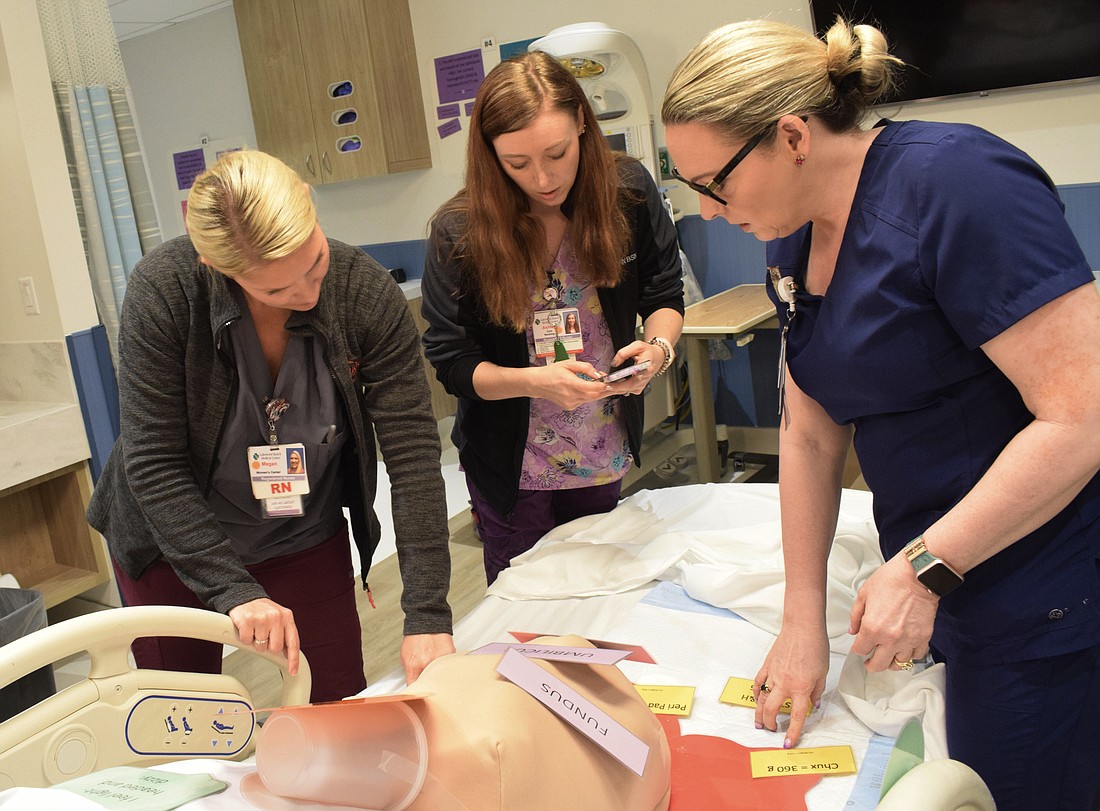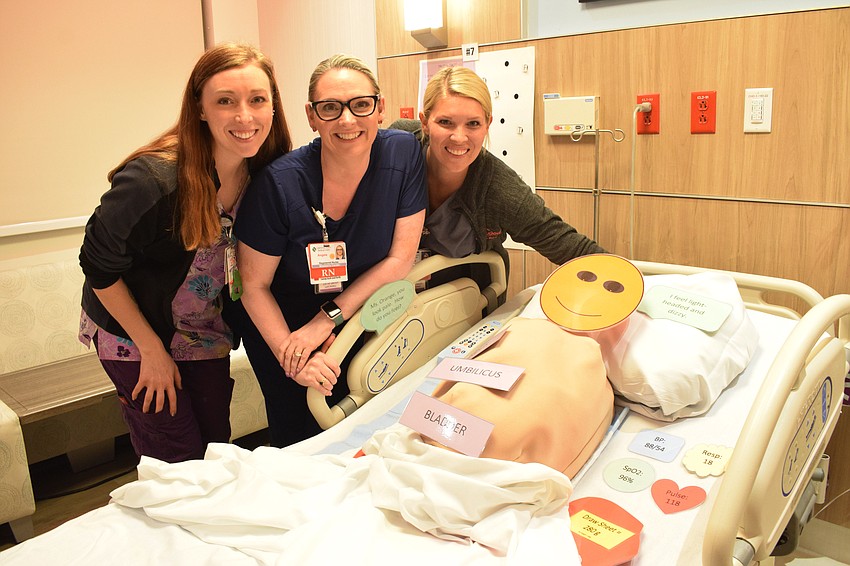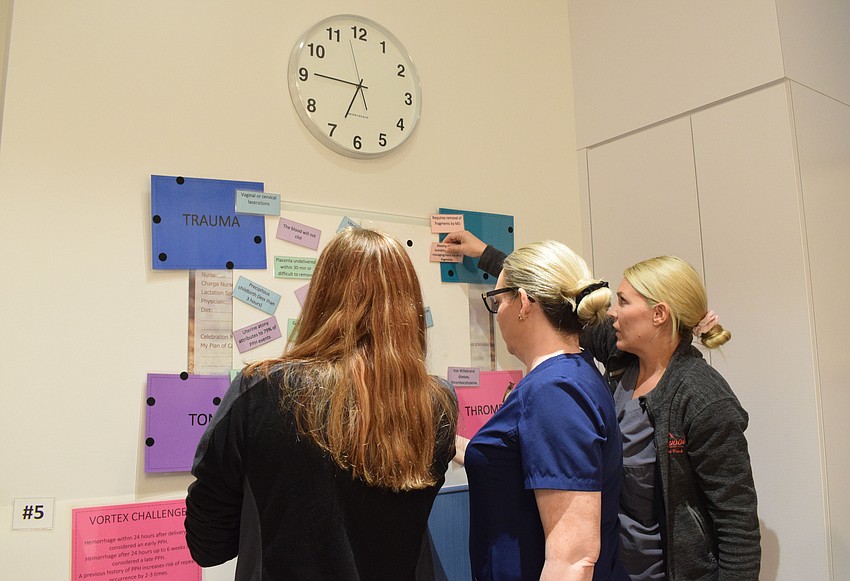- December 29, 2024
-
-
Loading

Loading

Megan Buccholz, Angela Ward and Ashley Coolidge, all nurses in the maternity unit of Lakewood Ranch Medical Center, already were feeling pressure.
It wasn't because of a patient needing emergency medical care.
Instead, they had 20 minutes to save Ms. Orange, a mannequin suffering from a postpartum hemorrhage. It was all part of an escape room style training session Feb. 16 in the Women's Center. The training continues through Feb. 28.
Christine Coney, a birth designer, educator and lactation specialist for the hospital, said the postpartum hemorrhage escape room was a part of a monthly drill.
“We are consistently challenging our brains, making sure we’re up to date with any new recommendations or changes,” Coney said. “We do monthly drills to make sure we are constantly reminding ourselves of what we need to do in every situation that can come about, especially in the maternity unit.”

A postpartum hemorrhage can happen any time from the time immediately after delivery up to 12 weeks after the baby is born.
“Postpartum hemorrhage is one of the leading causes of maternal mortality in the U.S. and globally,” Coney said. “So I wanted to try to do something a little bit different instead of just reading an article and taking a quiz or something like that.”
The nurses had to complete eight activities that would require them to review how to assess a patient, identify risk factors, identify medications and their side effects, determine quantitative blood loss, and more.
Buccholz, Ward and Coolidge finished the activities with 5 minutes to spare. A red light was turned on in the room to let the nurses know they had incorrect answers on one of the activities.
They couldn’t escape.
Coney told the nurses they needed to return to the true-false activity where they proceeded to go back and forth on a few answers.
Buccholz said the true-false activity was the most difficult because not every situation is black and white, and with an emergency like a postpartum hemorrhage, changes are always happening.
Time was up.
Buccholz, Ward and Coolidge had everything but one answer correct.
“You were so close,” Coney said to the nurses.

Coney spent time reviewing the activities with the three nurses, discussing the challenges they faced along with other important information.
Ward said the escape room was a great educational experience.
“The time frame made it real as if we were with a patient,” she said. “It gave us an adrenaline rush. It was very realistic. If someone calls for extra hands, we’re walking in the room, and we’re having to look around the room for clues.”
Throughout the escape room, there were clues to help the nurses be able to properly assess Ms. Orange. For example, one activity told them Ms. Orange had asthma, which helped them to choose a medication that didn’t have a side effect of making a patient wheeze.
Much like in the case of a real postpartum hemorrhage, the nurses worked together, communicated with each other every step of the way and depended on each other to help answer questions.
Coney said it is difficult to stand back and let the nurses work through the activities without giving advice or helping. She had to keep a straight face during the exercise to ensure she wasn’t giving any answers or away.